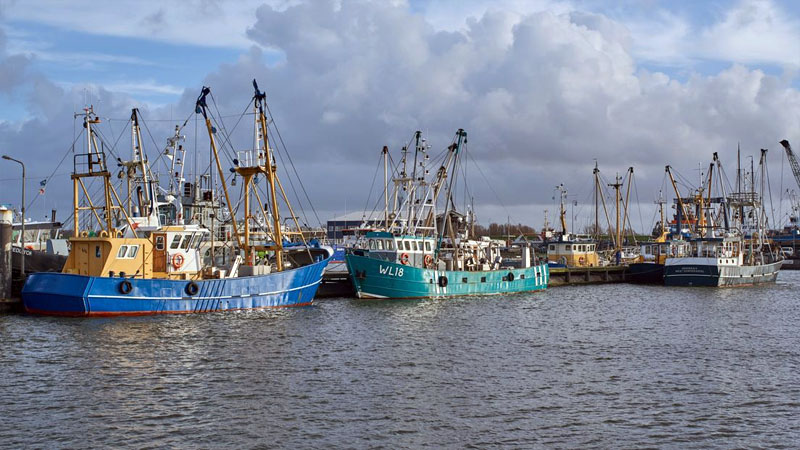Exclusive content

Shrimp fishermen in the Netherlands are facing a critical challenge as some are veering away from adherence to the Marine Steward Council (MSC) certification standards, jeopardizing the sustainability credentials of their catch. The MSC certification, a hallmark of sustainable fishing practices, is at risk due to the emergence of a group of fishermen who are now returning from the sea with uncertified shrimp.
MSC Warning Signals Concerns
The Marine Steward Council Benelux has issued a warning, emphasizing the potential repercussions of straying from the agreed-upon standards. Collaborating with German and Danish counterparts and fisheries biologists, shrimp fishermen have devised a management plan to uphold the quality mark associated with their catch. Central to this plan is an agreement that restricts fishing hours in correlation with shrimp availability.
Amidst a challenging year for shrimp fishermen marked by poor catches and substantial investments in cleaner engines, deviating from the management plan poses significant risks. Christine Absil of the Marine Steward Council warns that non-compliance could result in the loss of the MSC quality mark, thereby compounding the challenges for all fishermen who rely on certified shrimp to meet market demand.
Potential Market Ramifications
While there are initial signs of a market for non-certified shrimp, the broader implications of losing the quality mark could severely impact the trade. With consumer preference increasingly leaning towards certified products, the loss of certification could exacerbate the existing challenges faced by shrimp fishermen.
The absence of a nature permit for shrimp fishing further complicates the situation. Minister Van der Wal’s proposal to tolerate fishing until December 2024 provides temporary relief but underscores the need for a sustainable long-term solution. Organizations like Vebega and the Cooperative Fisheries Organization CVO emphasize the importance of maintaining the MSC certification in securing future permits and advocating for sustainable practices.
Calls for Structural Solutions
Recognizing the need for a comprehensive approach, stakeholders stress the importance of addressing overarching issues such as fishing pressure and resource management. Reorganizing the fishing industry and engaging with government authorities are proposed as essential steps towards ensuring long-term sustainability and mitigating environmental impact.
At its core, the MSC’s mission is to safeguard marine resources for future generations. Maintaining a balance between fishing pressure and available resources is imperative for sustainable fisheries management. While immediate challenges loom large, long-term strategies aimed at promoting responsible fishing practices are crucial for safeguarding the health of marine ecosystems and the livelihoods of fishermen.